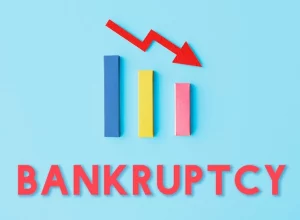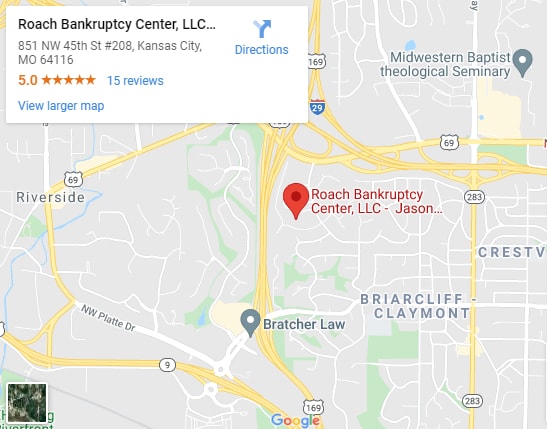Are you feeling ashamed of declaring bankruptcy? You shouldn’t, though, because it happens, and there are benefits to filing your case. However, filing for a bankruptcy case is a serious business. And your desire for relief comes with major sacrifices.
Nevertheless, nothing’s more serious than staying in overwhelming debt. In fact, it can have a negative impact on your mental health.
So, if you’re looking forward to having a fresh start and seeing that filing for bankruptcy is the only option, here’s your best guide. Our bankruptcy lawyers in Kansas City will teach you everything you need to know about bankruptcy and its benefits.
We’ll also discuss some of the most important considerations when deciding to file your bankruptcy case. Let’s begin!
How bankruptcies work
Although you might not care much about this part of the discussion, it’s important to know why people go bankrupt. Historically, these are the most common reasons:
- Job loss, followed by the difficulty finding a more decent work
- Accrued medical expenses that might have resulted in unreimbursed health insurance
- Business failure
- Divorce or legal separation
Obviously, others’ inability to save enough and prepare for sudden financial catastrophes leads to significant debt. They immediately turn to creditors or other financial institutions to somehow weather the storm. Unfortunately, it doesn’t always lead to their financial redemption. Some are even dragged further into limbo.
Filing for bankruptcy could feel like adding insult to your injury. But in reality, it’s the other way around. Bankruptcy offers a chance for a hopeful beginning and a renewed, positive outlook on life.
Benefits of filing for bankruptcy
 Like other people, you might have the same preconceived notion of what bankruptcy signifies. But it’s only a stigma that exists in your mind. It can constantly be challenged once you realize the benefits of filing for such a case.
Like other people, you might have the same preconceived notion of what bankruptcy signifies. But it’s only a stigma that exists in your mind. It can constantly be challenged once you realize the benefits of filing for such a case.
Little do others know that bankruptcy is one of the most valuable protections an American could have. Without this protection, debtors would have sunk deeper into guilt, hopelessness, and shame. The Bankruptcy Code clearly outlines people’s rights to legal measures, which help safeguard their personal properties.
That said, here are some of the benefits of applying for bankruptcy.
You’re protected by an automatic stay
Immediately after a debtor files for bankruptcy, an automatic stay takes effect. An automatic stay is a provision in the U.S. Bankruptcy Code that temporarily stops creditors, collection agencies, government entities, and others from contacting or demanding money from their debtors.
The law will protect you against creditors who want to start or continue pursuing you or your property, with the enforcement of the automatic stay.
You can even sue a creditor who continues to contact you or attempts to file a case against you despite receiving a bankruptcy notice.
When the automatic stay is in place, the bankruptcy court will stop the following activities:
- Foreclosure proceedings
- Tenant eviction
- Utility disconnections
- Collection of overpaid public benefits
- Multiple wage garnishment
The injunction will not be removed or modified unless the creditor files and serves a motion for relief from the automatic stay. Still, the approval depends on the bankruptcy court judge granting the motion.
However, there are other activities that the automatic stay cannot halt. These include:
- Interception of a tax refund for domestic support obligations.
- Tax obligations, including audits, demand for tax returns, and tax assessment
- Domestic proceedings, such as dissolution of marriage and domestic violence charges
- Money owed because of a criminal proceeding
It’s also important to remember that the automatic stay does not apply to non-debtor entities, such as corporate affiliates, corporate officers, co-defendants, or guarantors.
Your future paychecks are yours to keep
In a legal procedure called wage garnishment, the court orders an employer to take a portion of a debtor’s paycheck to pay his or her creditor.
Wage garnishment can be used to settle different types of debt, including:
- Child support and alimony
- Medical bills
- Credit card debt and personal loans
Wage garnishments occur when your creditor sues you for an unpaid debt. A court hearing will take place where you will have the chance to oppose the garnishment. If your appeal fails to stop the garnishment, it can worsen your financial situation.
As mentioned earlier, filing for bankruptcy can stop wage garnishment or lower the amount garnished from a debtor’s salary. For instance, a Chapter 7 bankruptcy works by canceling most of your debts. With an automatic stay in effect, you can keep your future income..
Bankruptcy gives you hope
The good thing about declaring bankruptcy is the sense of hope it gives to debtors. Unlike what others think, bankruptcy is based on forgiveness rather than retribution. In other words, it changes the way people view debt by offering them a better course.
For example, filing for a Chapter 13 bankruptcy allows you to repay your obligations over time and often at a discount. This includes having a repayment plan to help you catch up on your back payments.
Debtors are also required by the court to complete an instructional course in personal financial management, in addition to a credit counseling session. Although it’s a condition for receiving a discharge, it can serve as an excellent start to managing your finances. Courses may vary from district to district, but sessions typically cover the following topics:
- Budget management and preparation
- Responsible credit use
- Consumer protection laws
- Financial crisis readiness
Sometimes, people only need time and opportunity to regain their lost confidence. And with a renewed spirit and restored hope, it’s easier to deal with a financial crisis such as a debt.
What do you need to do before filing for bankruptcy?
If you choose to file for bankruptcy, you need to know which type would best serve your situation. It can be a complicated task, though, so you may want to seek advice from a bankruptcy attorney.
Also, you must consult a nonprofit credit counseling agency before you can file for bankruptcy. This consultation aims to provide feasible ways to handle your debt outside bankruptcy. And to qualify for bankruptcy relief, you must show a certificate proving you received credit counseling from an agency approved by the U.S. Trustee’s office within 180 days before you file.
You also need to know whether you’re qualified to file for a specific bankruptcy case. Generally, you have to take a bankruptcy means test.
It’s designed to determine whether your income is low enough for you to file for Chapter 7 bankruptcy. If your current monthly salary is less than the median income for a household of your size in your state, then you pass the means test.
Contact Roach Bankruptcy Center, LLC
Your guilt and denial wouldn’t save you from your financial misery. One way or another, you need to accept that debt is something you cannot escape. It’s better to face it head-on. However, you don’t have to deal with this problem alone.
Given the benefits of filing for bankruptcy, it should somehow bring you peace of mind, knowing that there’s hope after all. Yes, overcoming debt doesn’t happen overnight. But if you have bankruptcy attorneys at Roach Bankruptcy Center, LLC to guide you, it will surely be worth it in the end.
So, call us now to receive the best legal advice!



